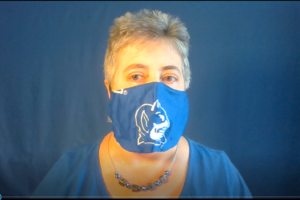
Tips for Transitioning from College to the “Real World”
Some of life’s transitions are big moments while others are internal. Some are no surprise, such as graduating high school, and others come as a huge shock: a sudden medical diagnosis. One transition we haven’t talked about much on this blog falls into the former category: the transition from college to the “real world.” It’s one many of us have made, but it’s not something many people think about once it’s over. However, I work with a recent college graduate, and I thought it might be nice to get her fresh perspective on this time in life and then combine it with tips from my professional experience.
If you know a soon-to-be-graduate who needs organizational coaching through this time of transition, share this post or reach out to us for help.
First are the questions I asked my recent graduate friend, Monica. I follow that with three tips based on our discussion.
Q: What changes have you noticed about life since you’ve left college?
A: As I finished college, graduated, and started a full-time job, all during a global pandemic, you can probably imagine that life is totally different than it was six months ago. While college life kept me just about as occupied as I am now, the biggest change I have noticed is the separation of work time and free time. During the last four years, those times were pretty jumbled and my schedule was all over the place. Now, there is a much larger separation between work and free time and I enjoy knowing exactly when that will be throughout the day.
Q: For many, college is really busy due to classes and extracurriculars. Is life actually easier in some ways?
A: I wouldn’t say that life is easier, but it is less stressful. The times of pulling all-nighters for studying and staying up way too late to watch that basketball game have come to a halt. While these are some of the best memories I have from college, I really value the schedule I have now and appreciate the weekends even more than I did then.
Q: What “adulting” things have been challenging? Insurance, retirement planning, or something else?
A: Sure, paying bills, dealing with insurance and taxes, and being completely on my own are all challenging and took some getting used to. But the real challenge for me has been finding the balance between “the real world” and my life in college. As a younger graduate, I still have plenty of classmates and friends still in college and our lives are very different now. Accepting the fact that that chapter has closed and another has opened was a bit difficult and you should know that FOMO is real!
Q: Has your time management changed at all?
A: As I mentioned earlier, my time management has definitely changed. Before, I was trying to fit in everything and anything that I could during the day. My time was shared between all of my obligations and I had to figure out a schedule each day. Now I have an allotted time for work and allotted time for anything else and I don’t have to even think about mixing them.
Q: Your transition has taken place during COVID. How do you think that may have affected this time?
A: As if graduating and starting a full-time job isn’t a big enough change, add a global pandemic and stay-at-home order on top of that. I will admit that like everyone else, it was an uncertain and scary time. Being social and meeting new people when you make a big change like graduating is so important and it was very difficult to do during this time. Talking to friends on Zoom and FaceTime became the new normal and it definitely was not ideal.
Q: You live in an apartment, though you may have done that for a while. How is organizing that space differently (if at all) than organizing your dorm room?
A: If you could guess, a dorm room is much smaller than an apartment. Along with the space aspect, you are usually sharing a room with another person in a dorm. I loved my time in the dorm and found that it was a great way to make friends but I appreciate having my own room and space. In a dorm, you have to coordinate with your roommate about your shared spaces and be mindful of their wishes. Now that I have my own space, I can organize things how I like them and I have much more privacy.
Q: Were there any stressful moments or things that caused stress as you left school, got a “real” job?
A: Absolutely. The most stressful thing to me was deciding what to do next. I was in between going back to school for a masters degree or finding a job. I had a really hard time making a decision because I was ready to start gaining real work experience but wanting another degree. My advice is to do what feels right and don’t pass up a great opportunity. School will always be there but the opportunity might not.
Q: Do you consider yourself a mostly organized person or have you ever faced challenges organizing your stuff or your time?
A: Luckily, I do consider myself a mostly organized person. I find pen and paper are my favorite medium and I can’t go anywhere without my agenda. My level of organization helped me to do well in school and stay on track. However, I am a normal 21-year-old and life can get messy sometimes. As long as you get right back on track, it’s okay to be disorganized for a moment.
Q: Do you find it easier or harder to stay organized now?
A: I find it easier to stay organized now. In college, you might be reporting to 15 different people per semester including advisors, professors, coaches, and TAs, and likely your parents. Being able to report to one set of people is really great and keeping track of my tasks is easier. As for personal organization, I have loved being able to move into a space that is larger and only having one roommate. Keeping the space organized has been much easier than it was when in college when I was constantly surrounded by classmates and friends and had multiple roommates.
Q: What helped you during the transition? Any tips for others?
A: Find someone who you can relate to and talk to them about their experiences during this time. I gained a lot of insight just from talking to professors, family members, and friends who had similar majors or interests. There are so many opportunities out there and one conversation could be the connection that gets you to a really great place.
Three Top Organizing Tips
It’s easy to see how life changes pretty quickly from college to adulthood. Here are the three main tips I’d offer based on our discussion.
- Plan your time – One annoying thing about adulting is that your time isn’t as free. As Monica pointed out, her schedule was all over the place during school. In some ways that was more challenging, but then again, she could probably schedule a doctor’s appointment in between classes. Now, with a full-time job 9-5, she must figure out when she can squeeze that in: before work, on a day off, etc. This is similar to the situation faced by those shifting from freelance to full employment. Most college students use planners or calendars, whether written or online. You might think you’d rely on it less than before, but that’s not true. If you don’t have a way to plan things, find one.
- Find your crew. This may not sound like an organizing tip, but bear with me. While work is a huge part of our lives, it’s not all of it, and it’s critical to spend time with friends. Monica mentioned her FOMO. She’s lucky to live in the same city as her friends. Others may move somewhere new where they don’t know anyone. Either way, find some people and plan some time with them. It’s easy to get caught up in the to-do lists of life during free time or stare away the hours in front of the TV. Make a list of non-screen things to do out there and schedule those things.
- Organize your files. Your files are apt to be electronic, but you’ll still need a system for tracking adulting documents. Examples are renter’s or health insurance paperwork. You’ll also want to organize your logins for various websites because it’s a list that will continue to grow.
Do you know someone who made the transition recently from college life to a full-time job? What surprised you about it?



